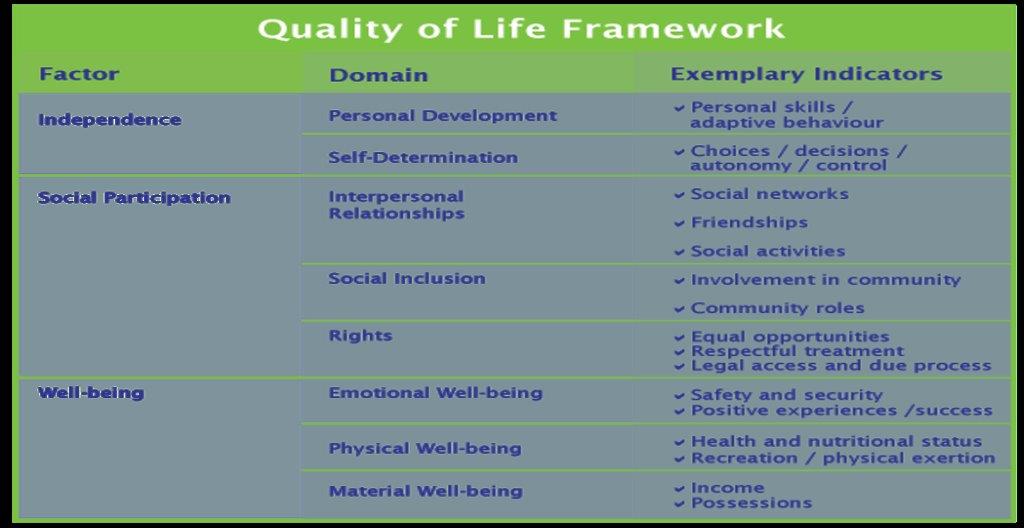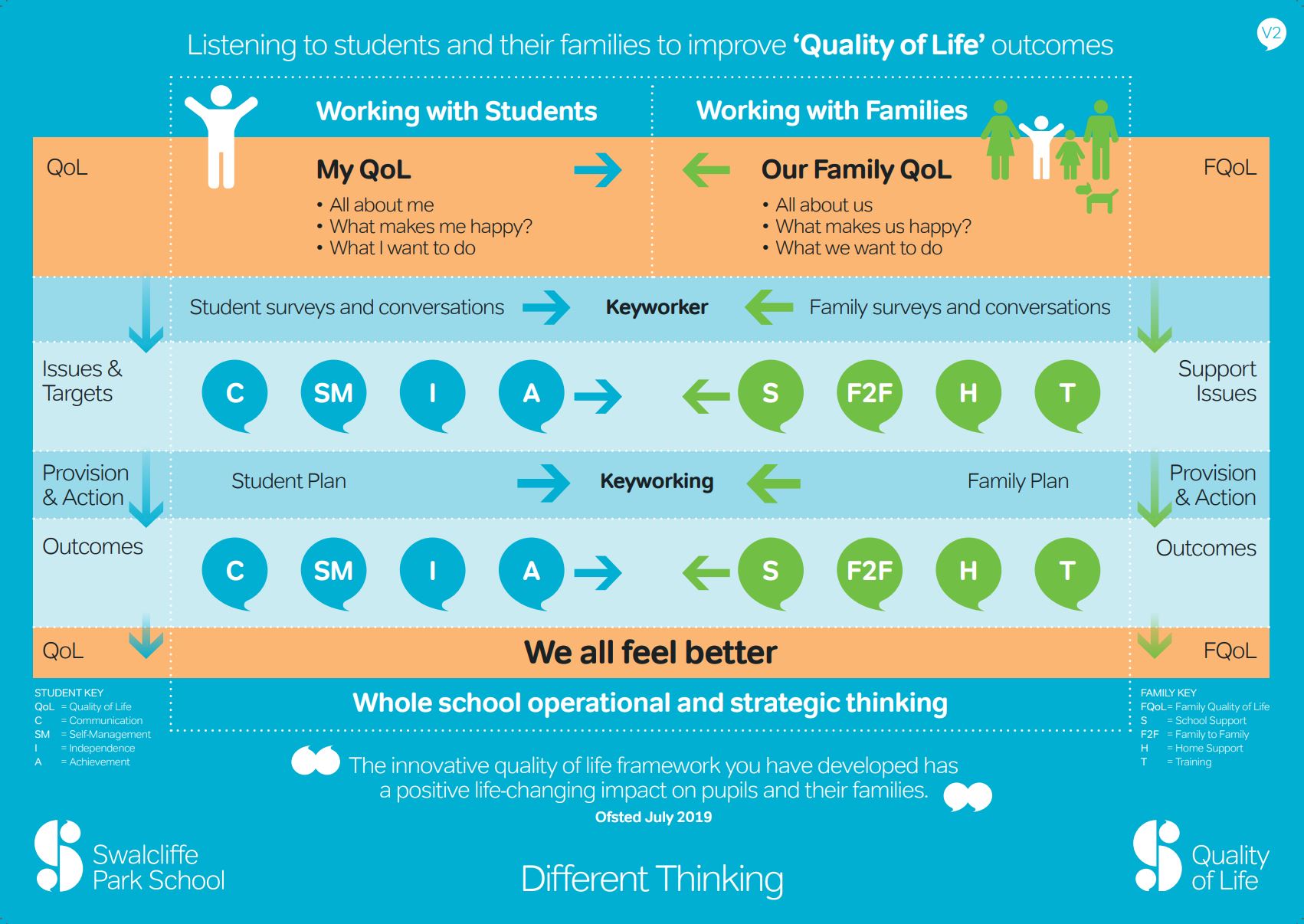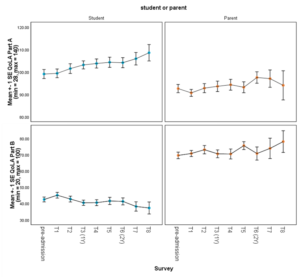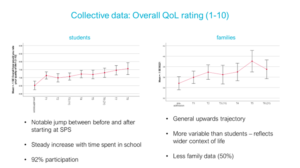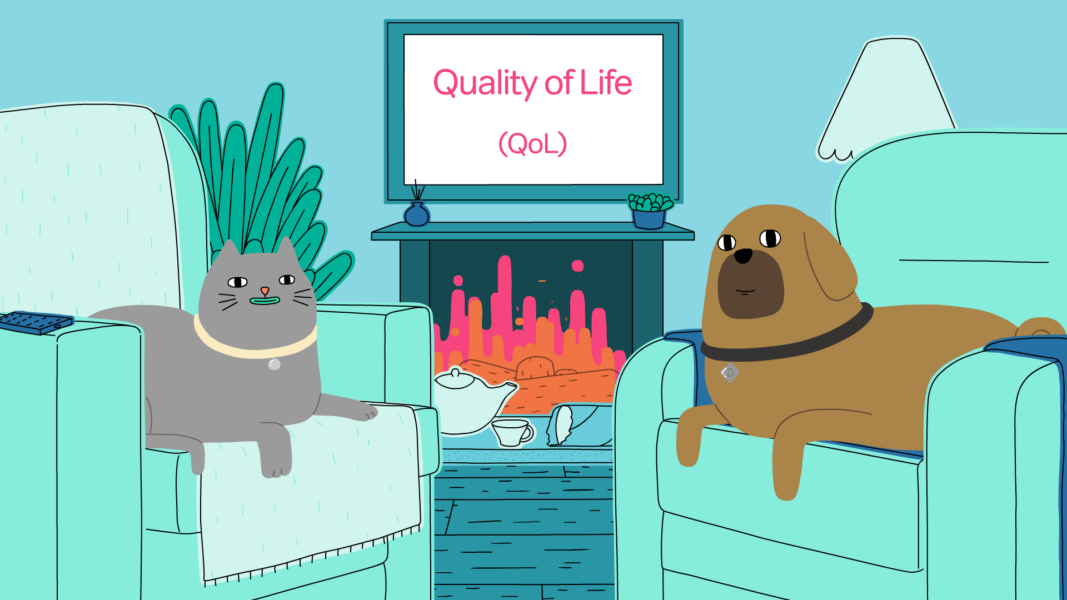In this section you will be able to read what others have written about our QoL work, which we hope will inspire you to find out more!
1. National Autistic Society: ‘Advanced Level’ Autism Accreditation: please click to view
2. National Autistic Society: ‘Enhanced Practitioner’s’ Award: please click to view
3. Ofsted: Here are some direct quotes from our recent inspection reports.
a) Residential Care 2018: ‘Outstanding’
• The emphasis placed on improving the quality of life experienced by children, and their families, produces significant improvements for all
• The exceptional quality of children’s and young people’s placements arises out of particular strengths of the school. The first is the value that managers and staff place on each boy’s quality of life (and that of his family). This includes the children’s experience of care and attainment of personal goals. Many of the children spoken to thought that they were doing better in this school than anywhere they had been before. One child said that this was because ‘They [the staff in the school] “get” autism. They find out what you need and help you do it.’ Central to this is the high level of consultation with boys and their parents to gather their views about what is going well or not for them and measuring this over time. Questionnaires about children’s quality of life have an excellent level of take-up. They provide managers with a wealth of information that they use to focus on the help that individual children need and to understand what strategic changes might have a beneficial impact across the school.
• A further strength is the quality of the relationships that staff forge with boys and their parents. This creates an environment in which children address anxieties and difficult previous experiences knowing that they have the support of people who ‘believe in them’. They can then meet the challenges of education, of relating to other people and managing their lives more successfully. Families describe an excellent rapport with managers and staff; one family member said, ‘The more open we are with the problems, the more helpful they have been with us. At some of the most challenging moments, they have been supportive, strong and adapted things very quickly.’
• Parents recounted how children’s lives have been transformed here, with several saying that their sons had achieved ‘so much more than we expected’
• Evidence-based research has informed how the school is organised and the approach taken to working with children who have autistic spectrum disorders. The school is now contributing to international research in the field and senior staff have presented the school’s pioneering work at conferences in the UK and abroad. Leaders have made strategic changes, including the creation of new posts and developing training, to translate the vision into practice. Information collected from children, young people and their families has been used to target resources to address the issues that are of greatest importance to them, such as the management of anxiety. There are several examples of how children have benefited as a result.
![]()
b) Education 2019: ‘Outstanding’
• …you provide an exceptionally safe haven where pupils thrive. Your evident commitment and determination to improve the quality of life for pupils and their families are at the heart of everything the school does.
• The innovative ‘quality of life’ framework you have developed has a positive, lifechanging impact on pupils and their families.
• Along with other leaders, you have established the school as a centre of excellence for pupils with autism.
• …pupils have time with their key worker built into each day, with detailed, written records of the conversation shared appropriately with other staff. This consistently strong communication and close collaborative working between staff guarantees that pupils’ concerns are heard and extra help is put in place quickly. Pupils and their families fully appreciate this carefully tailored support
• …wealth of information you gather is shared with pupils and their families as well as staff, helping everyone to work together for pupils’ benefit.
• The inspirational curriculum meets pupils’ needs precisely. The ‘quality of life’ framework is underpinned meticulously by the school’s well-established core values of ‘the 4 whys’ (communication, self-management, independence and achievement). Regular, carefully devised surveys are completed by pupils, their families and staff, and these accurately inform the excellent provision that pupils receive. Alongside formal learning, pupils benefit extensively from other experiences that help them to understand their own needs, preparing them well for life outside of school. This approach enables pupils to succeed, and successfully improves their quality of life, alongside that of their families. Through the evident expertise and success, you have won parents’ overwhelming trust and confidence, with one stating that ‘the staff go above and beyond to accommodate my son’s individual needs’.
![]()
c) Residential Care 2019: ‘Outstanding’
• The actions of the school contribute to significantly improved outcomes and positive experiences for children and young people.
• In an environment where they feel accepted, understood and valued, the pupils who come to reside at this school make substantial progress. For some, this progress is exceptional. This increases opportunities for the pupils to make their mark in the adult world, and to develop a sense of worth and meaning.
• The progress that the resident pupils make is supported and accelerated by a skilled team of carers, teachers and therapists, who work closely together to identify and understand the critical areas for each resident pupil’s development and to target these in a comprehensive and co-ordinated manner. This includes working in partnership with pupils’ families. One parent described the staff and school as, ‘Brilliant. I am not on my own anymore – I have support and my son is in a safe place. The school has given him a future and his key worker is very good. The communication is excellent.’
• High levels of communication between teaching and care staff, together with a structured and consistent key-working system, ensure that the well-being of the resident pupils is closely monitored and that they have at least one adult in whom they can always confide. The resident pupils are able to say who their key workers are and they show attachment to them.
• The advances that leaders have made in developing an integrated model of care to improve outcomes for the resident pupils, that includes their families, are exceptional. Some of these advances are receiving national and international recognition. The model, termed the ‘Quality of Life’ model, recognises the significance of the family’s perspective on improving outcomes and effectively measures progress across targeted areas. Relevant research findings have been used to support this development and the model has been developed in collaboration with respected academic institutions and experts in the field.
• A hallmark of this service is the firm commitment expressed by leaders and managers to understand the wishes, views and feelings of the resident pupils and to respond to these in a responsible and meaningful way.
![]()
4. Students
![]()
5. Families
Parent A: Dec 2020
The school understands that a student’s Quality of Life and their family’s Quality of Life are intertwined and impact on each other. My son’s key worker takes time to understand any issues my family are experiencing and offering practical and moral support to help all of us. Knowing my son is so well looked after and that we can discuss any concerns, has given me the space and confidence to do something for myself. Previously my whole life was focused on my children and, in particular, securing SEN support for my son (which often felt like a full-time job in itself). It was a life of stress and worry for much of the time. Now my son is happy and our family life is more comfortable, I feel more relaxed and have some time and space for myself. I have recently started a Master’s Degree and will begin a work placement in the New Year. I hope in the future to work with autistic students and help them to have a brighter future”.
Parent B: Dec 2020
“Swalcliffe Park’s ‘Quality of Life’ creates a safe, proactive and collaborative space in which our son feels validated and our parental insights and aspirations are no longer gaslighted.
In this environment School and Home work together intelligently to support our son to overcome past trauma, with a focus on encouraging him to explore and ‘rock’ his strengths and passions rather than his ‘deficits’ or building ‘resilience.’ As a result his anxiety is significantly reduced at school and at home and he is starting to look to the future with a positive autistic identity and the confidence to self-advocate. Happiness no longer feels like a moonshot project!”
![]()
6. Staff
![]()
7. QoL Network: Matt Tiplin: Director of Education, National Autistic Society: Dec 2020
NAS schools and children’s services have been working with Kiran and his team since summer 2019 on developing our approach to QOL. During that time, colleagues across our family of schools and residential provisions have been able to reframe how we support our autistic pupils through the provision of education that best meets their needs and our aspirations. Working with Kiran, we have gained insight and expertise into how and why this approach has worked in his and other schools, and how we can adopt a framework that really works for our autistic students and their families. Colleagues in NAS schools have valued Swalcliffe Park School’s open collaboration and look forward to working together on and into the future.
